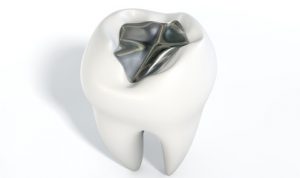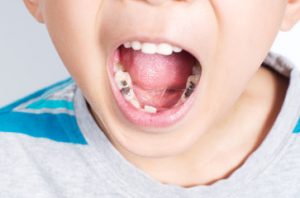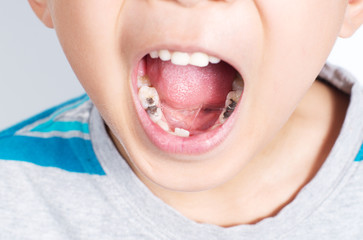Tooth decay is bad for your overall dental health. It shows that you are not good with your oral care routine. It also shows you don’t take your teeth seriously. Worse still, tooth decay causes cavity and may lead to pain, discomfort over time. If not treated on time, the decay can pose risks to the entire teeth structure.
Tooth decay, however, is entirely preventable. To avoid further pain and decay, a dentist will fill the gap with the material. The filling process causes pain, so immediately after the procedure, you cannot eat normally. Your dentist will offer you some instructions, but in a general way, you should change the habit of eating.
It is believed taking proper treatment of the cavity will help them to get rid of the pain and discomfort. However, once you have undergone the treatment of tooth filling cavity, you might feel pain in the tooth which underwent treatment. This is because with your treatment it might take some time for the filling to settle. As a result, you might feel pain for a few hours, and it is then difficult to chew food after a filling.

Plus, people who undergo teeth decay treatment and get a filling to have to show care with eating foods as they will be some limitation with what they can eat and what not. Such care will ensure that the filling is set as per the dentist wishes to treat the decay completely.
Below, we have listed some important five tips that may avoid trouble when eating and chewing.
5 Tips for Eating and Chewing After a Filling
1. Bite Gently and Chew Carefully
Don’t eat very fast, as this puts significant force on your sensitive teeth resulting in pain and discomfort. While chewing the food make sure that you are not harsh on the teeth and if possible, try chewing it from the other side for a few days. Keep your mouth closed as you chewing you are inhaling air which can trigger pain. Slow down and chewing food slowly can prevent your upper and lower teeth from each other to avoid painful contact.
2. Don’t Eat Sugary and Hard Food
Fillings take time to stand unless they set, don’t eat hard food that can cause discomfort and pain. Furthermore, avoid candy, sweets, ice creams, and other sugary food items. In case if sugar isn’t properly brushed out of the teeth, it may cause bacteria and cavities. So, be careful about both this aspect and avoid eating sugary or hard food.
3. Avoid Sticky Food
Just like a hard item, sticky food can cause discomfort and pain. Sticky food has the ability to pull out the filling. So, it best to avoid the stuck food for some days after receiving a filling. If your tooth cavity filling is sensitive after one week, schedule another appointment with your dentist nearby. If you don’t pay heed to the advice and eat sticky food despite a filling, there might be chances of the filling pulling out.
4. Avoid Consuming too Cold and Hot Beverages
Consuming too cold hot beverages may disturb your fresh filling that hasn’t currently set and trigger pain. So, rather drink extremely cold and hot drinks, stick to moderate temperature drinks.
Always sip drinks with a straw to avoid teeth contact. And avoid hot soup, coffee, milk that can cause pain in the newly filled teeth. The filling makes teeth sensitive, and it takes more than one week to set. So, in order to avoid pain and discomfort drink juice, coffee, tea, cold drink and milk of medium temperature. Additionally, you should avoid drinks that are bad for your teeth.
5. Close Your Mouth When Chewing
Put a small bite into your mouth then close your mouth and chew slowly. Besides being good manners, chewing with the closed mouth avoid cold air from entering your mouth, when you eat. This habit is good when you have filled and you don’t want to feel pain or discomfort of any sort.

Cavity Prevention
Keeping teeth healthy is a good practice can also ensure long lasting filling. Brush your teeth twice a day with soft brush and toothpaste that contains fluoride and floss. In case, if you feel tooth pain then visit a dentist nearby. Nowadays filling is more easily performed. So, if you are experiencing pain, without thinking much, consult with the dentist, whose tooth cavity filling cost is affordable. You should also not worry about the treatment of as it’s pain-free and does not cause any discomfort at all.
Food Suggestions After a Filling
After receiving filling only stick to healthy and warm food (not too hot). For only one week eat fresh vegetable soup, fruit smoothie that made from banana, berries, and cream. Then gradually adds harder food in your diet. Keep in mind, after one if you still feel sensitivity and pain, consult with your dentist nearby and ask them the right solutions. You only feel sensitivity after one week of filling when decay has not been completely removed.
ALSO READ:
- 6 Best Home Remedies to Treat Wisdom Tooth Pain
- 7 Home Remedies For Toothache
- 5 Natural Remedies For Gum Disease
- 10 Signs You Need To Visit The Dentist
- 7 Options To Consider When You Have A Missing Tooth
- Top 5 Benefits of Having Wisdom Teeth Removed








